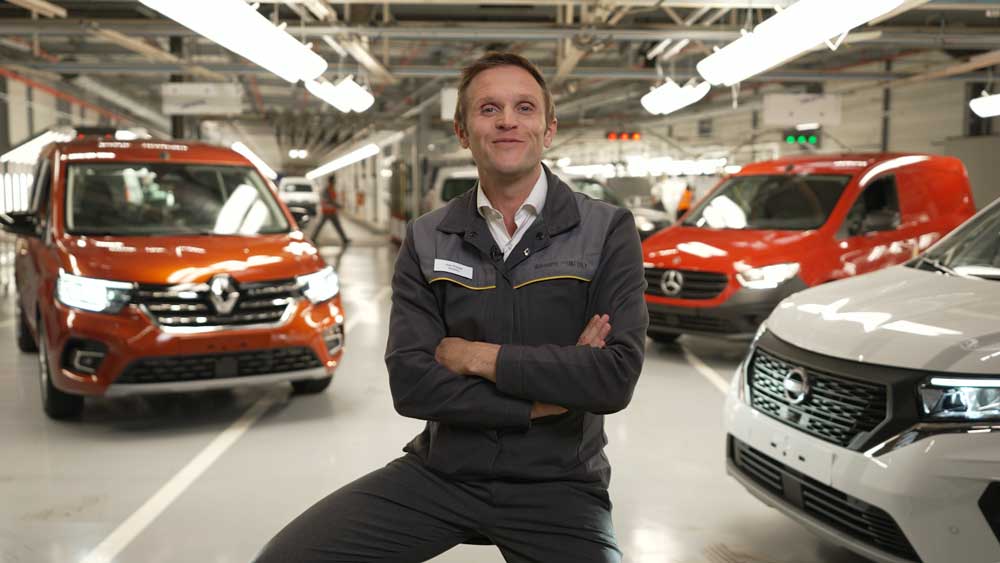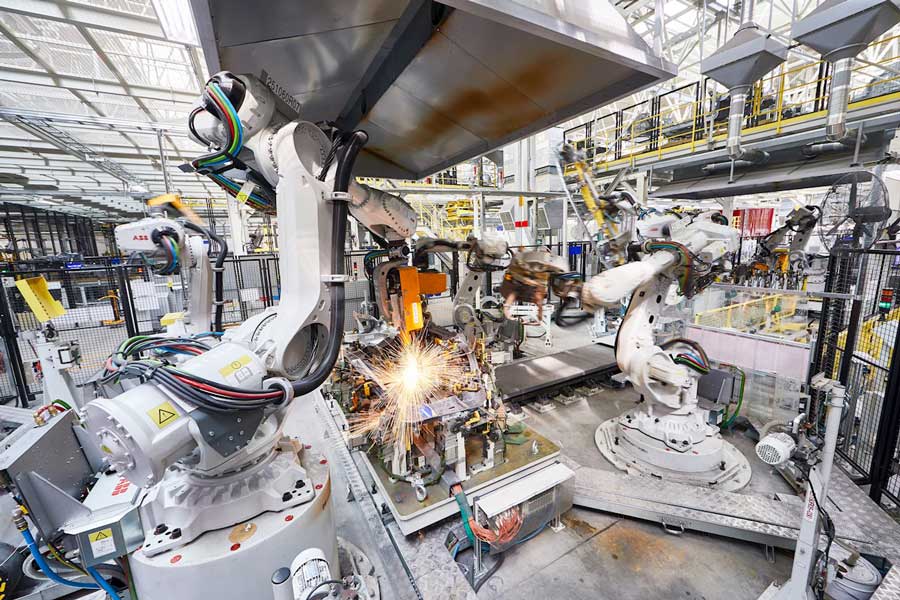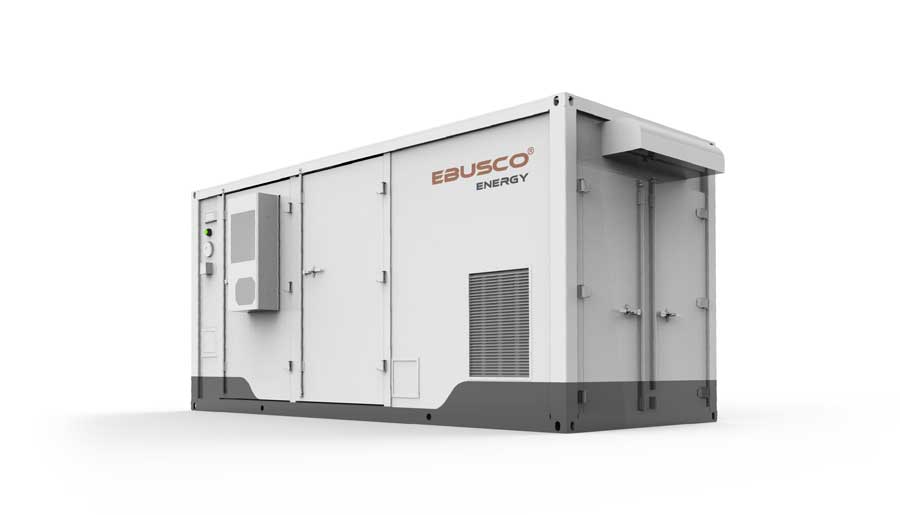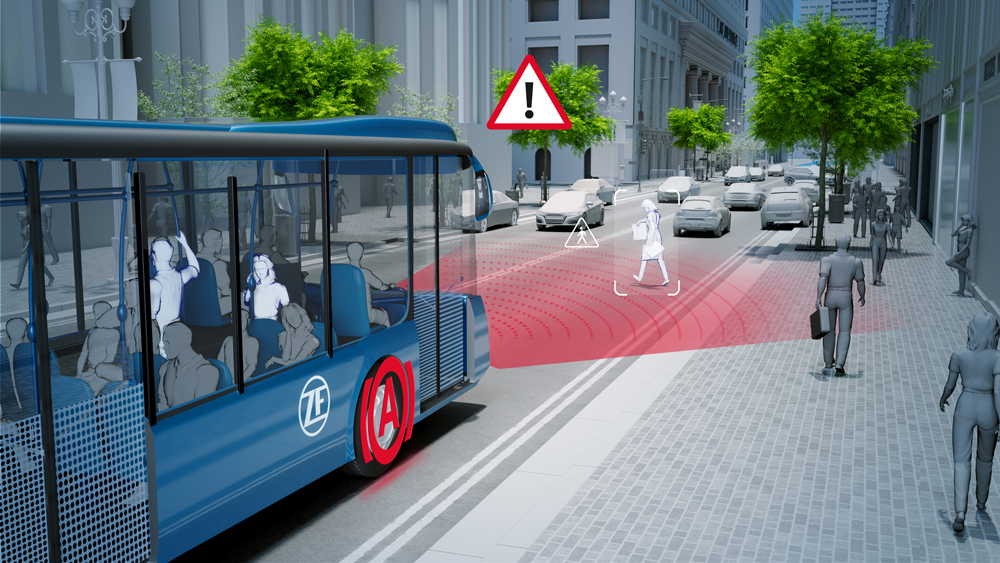This is a factory where a range models from various brands make their journey along production lines: Renault Kangoo, Mercedes-Benz Citan and Nissan Townstar. Here we are at the Maubeuge plant. Renowned for having produced Kangoo for the past 25 years, the factory has become the Alliance’s centre of excellence for light commercial vehicles. It is a perfect illustration of the mutually beneficial collaboration between Alliance members and partners. In this specific case, Renault, Nissan, and Daimler all share the same production lines. Through working together, the factory becomes far more efficient and competitive, which is beneficial for the customers. Jean-Philippe Daveau, Director of the Maubeuge factory, explains more in detail.
Excellence as a trademark. Expertise, proof of the trust shown by partners, Daimler and Nissan. Having produced more than 6 million vehicles since 1971, the Maubeuge factory is an icon in French automotives. 50 years of vehicles sent to the four corners of the globe, meeting the needs of each market.
Jean-Philippe Daveau, Director of the Maubeuge factory: “The Maubeuge factory has become the Alliance’s centre of excellence for commercial vehicles, having been in operation for half a century, fostering 25 years of experience manufacturing Kangoo, and honing expertise in electric vehicles for the past 10 years.“
Three types of customers
The vibrant collaboration with the Alliance and its partners has given rise to renewed confidence from Daimler and Nissan, with new models produced together with the new generation of Kangoo basis and set to be available with electric engines too.
“Thanks to our expertise in manufacturing light commercial vehicles, our two partners Mercedes (Daimler) and Nissan have renewed commitments. A major asset in fostering strong bonds and building high performance cars for each of our three customer types. It stands as testament to the excellence shown day in day out by each and every employee on the site,” explains Jean-Philippe Daveau.
From SUC to MCA, iconic models that have left their mark
The history of the Maubeuge factory began in 1969. The Société des Usines Chausson (SUC), then a major automotive contractor in France, bought land on the outskirts of the city where it set about building a factory. It started out entirely devoted to stamping shop and body shop. Painting, assembly, and finishing units were later created in 1971; the same year, the R15 and R17 left the factory doors for the first time.
Renault then bought out the remaining stake in SUC. On July 1st, 1981, the Maubeuge plant became Maubeuge Construction Automobile (MCA). More than 20 models have left their mark on the factory’s history: the iconic Renault 12, Renault 18, Fuego, Renault 21 Medallion, and Nevada.
The Kangoo revolution
A major turning point came in 1993, with the launch of the MCA 2000 Plan that aimed to ensure the sustainability of the factory thanks to an organizational overhaul and considerable investments. Implementation of the plan gave rise to the decision to produce Kangoo – an MCA exclusive light-duty van also available as a non-commercial mini-van – from 1997 onwards.
Kangoo, which will celebrate its 25th anniversary next year, quickly became an iconic vehicle with units sold around the world, including Japan. Private owners, tradesmen, and fleet operators: Kangoo won the hearts of all. Kangoo has since become a benchmark in its segment, with nearly 4 million units manufactured of which 70,000 are electric models. A success with customers and other manufactures around the world.
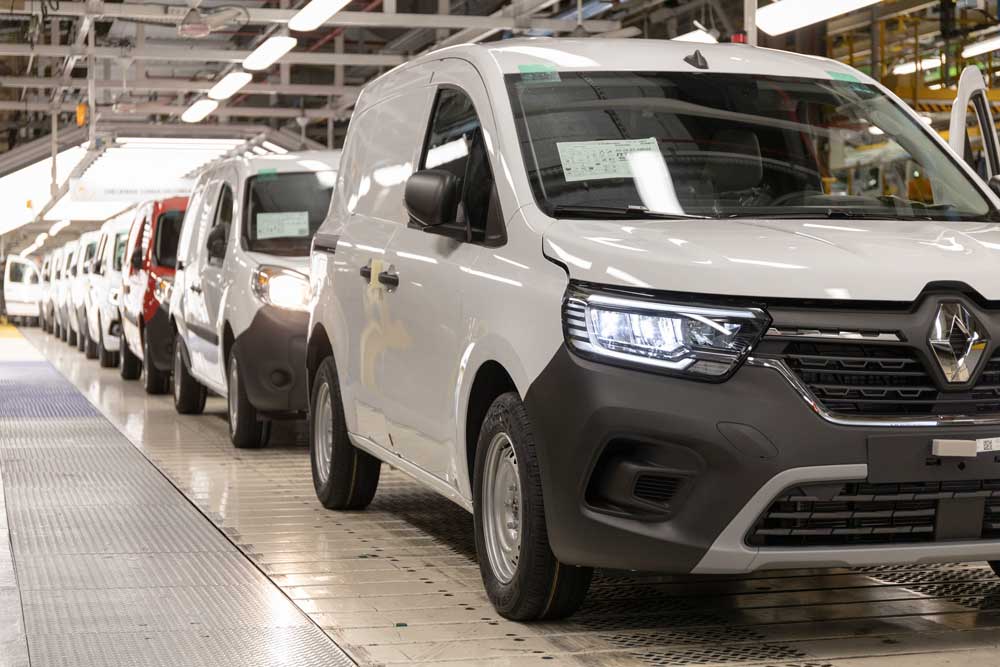
Daimler and Nissan join the show at Maubeuge
Recognition of the Maubeuge factory as a centre of excellence for LCV’s came in 2012 when the Alliance and Daimler decided to pool resources. The goal: expand the range of products, optimize available resources, and develop innovative technology that would be essential for present-day and future automotives. This is how the Mercedes-Benz Citan joined the production line alongside Kangoo. The partnership benefited from the site’s large production capacity and in-house expertise; two assets that have helped preserve the cultural heritage and identity of each brand.
This partnership is also story of people and machines, of skill sets that seamlessly match, and unique tools designed by teams from both companies to continually improve the quality work stations. For example, the Maubeuge factory installed a light booth that was inspired by German production lines and has since been used to check for faultless body colour paint jobs. Quality control and approval processes have been optimised. Years of passion and renewed confidence all came to a head August 2019 : Daimler confirmed that the successor of the Mercedes-Benz Citan would be part of its range and entrusted production to the Maubeuge factory.
At the same time, an Alliance brand has also joined the Maubeuge factory story. In 2019, a new strategic partnership, one that reflected the ever-vibrant collaboration within the Alliance, was signed with Nissan for production of the NV250 that was based on the Kangoo model at the time. The collaboration was renewed with the All-New Kangoo, which now rubs shoulders on the production line with its cousin, Nissan Townstar.
As Jean-Philippe Daveau explains, “As of this year, we have renewed the entire range. We have invested €450 million to transform the factory and to accommodate all versions across all brands, including electric models. As such, we have carried out work to boost capacity, but we have primarily trained and helped employees embrace modifications made to each workstation.“
XXL industrial equipment and an electrical transformation
To make room for the three brands latest models, the factory has transformed its manufacturing shops while improving the ergonomics and quality of each workstation. An impressive XXL press line, the largest of all Alliance plants, was installed in order to produce large-format parts. Over in body shop, more than 630 new robots have been added to assemble bodies of the newest models, with numerous aids to facilitate parts handling. The paint shop finishing line is now more modern, more ergonomic, and more connected than ever.
Production lines and facilities also required adaptive measures to directly incorporate the electric versions of Kangoo, Townstar, and Citan. To that extent, the factory built a battery assembly workshop and integrated battery installation directly onto assembly lines. The transformation showcases the drive at the Maubeuge factory to constantly strive for excellence. Be it Renault, Mercedes, or Nissan, being ‘Made in Maubeuge’ is source of pride for its 2,500 employees, but also for the Alliance as a whole!
The Maubeuge factory, a cornerstone of the ElectriCity hub
Thanks to its expertise in producing the Kangoo Z.E. and with 10 years’ experience as pioneer and leader, the Maubeuge factory continues to be a key player in accelerating the LCV electric transition and contributes to the ambitious strategy behind ElectriCity – new electric vehicle hub – that it has been working closely with for the past year. With an ambition to produce more than 400,000 electric vehicles by 2025, the industrial hub, which includes three plants at Douai, Maubeuge, and Ruitz in the north of France, aims to become the largest and competitive production centre in Europe.


